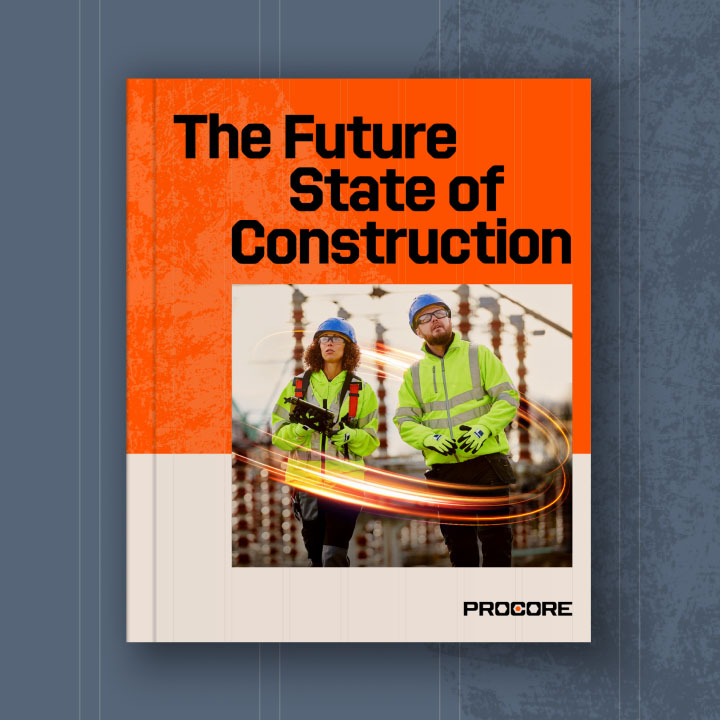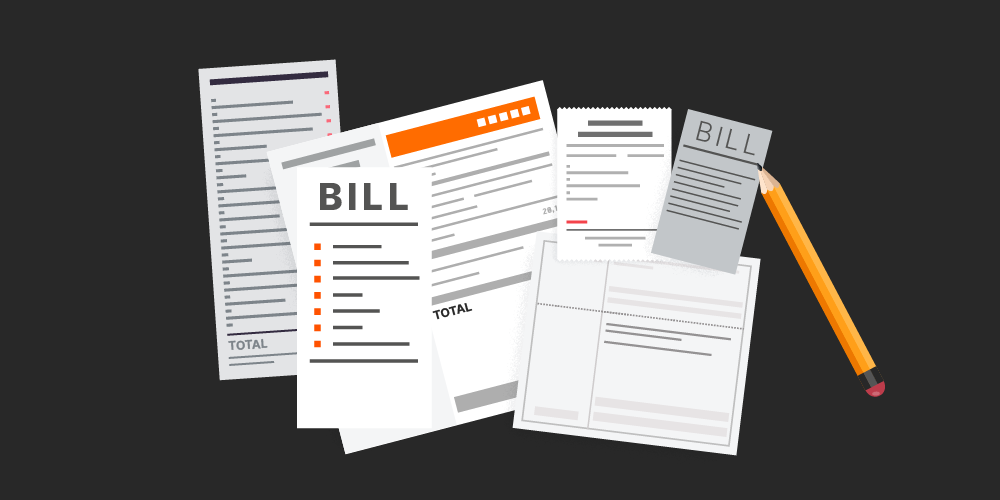— 10 min read
Security of Payment Act Queensland (QLD): What Contractors Need to Know


Last Updated Sep 10, 2025

Tom Proctor
Solutions Engineer, Enterprise
13 articles
Before joining the world of technology, Tom worked as a Contract Administrator. This hands-on experience gives him a unique perspective that he leverages in his current role at Procore, where he has been for the past two years. Tom is passionate about helping construction businesses understand best practices around project management solutions and the many benefits they can provide.

Miles Cope-Summerfield
Senior Strategic Product Consultant
I'm a Strategic Product Consultant at Procore with a passion for delivering creative solutions through software. At Procore, I wear multiple hats, working in consulting, change management, product management, sales and customer success. Currently I work with Enterprise clients to consult on processes and drive Procore’s evolution as a market leader. My four years in construction/engineering equipped me with skills to combine technical knowledge with real world experience. During this time I grew a passion for sustainability through completing life cycle analyses on sustainable timber construction, and designing with modern technologies to promote eco-friendly solutions.
Last Updated Sep 10, 2025

Understand your rights and obligations under QLDs Security of Payment laws to get paid on time and protect your cash flow.
Delayed payments are a common issue in construction, putting serious pressure on cash flow and subcontractor sustainability.
To combat this, Queensland introduced the Building Industry Fairness (Security of Payment) Act 2017, giving contractors and suppliers a clear legal framework to get paid on time.
The BIF Act entitles eligible claimants to progress payments, even if the contract doesn’t include them. It sets out a fast-track process for claiming, disputing, and recovering payments. The Act also prohibits “pay when paid” clauses and includes powerful enforcement tools to protect subcontractors.
Note: This article is intended as a general guide only and doesn’t replace legal advice. If you're unsure about your situation, it's best to speak with a qualified legal professional.
Table of contents
Key Rights Under the Queensland Security of Payment Act
Under the Security of Payment Act (SOPA), eligible claimants in Queensland can:
- Claim progress payments for construction work or related goods and services, even without express contract terms
- Serve a payment claim using a tax invoice or other written document identifying the work and amount claimed
- Receive a payment schedule within the earlier of the contractual timeframe or 15 business days
- Apply for adjudication if payment is late, underpaid, or no schedule is issued
- Recover unpaid amounts as a debt, including filing an adjudication certificate as a court judgment
- Trigger automatic liability if a payment schedule is not provided on time
- Suspend work with proper notice, without being liable for delays or damages
- Claim interest on overdue amounts at the contract or statutory rate
- Seek judicial review in cases of jurisdictional error
Access additional protections, including statutory Project Trusts and Retention Trusts for certain construction contracts, subcontractor charges, and charges over property or payment flows
Together, these protections aim to keep projects moving and both head contractors subcontractors aren’t left out of pocket.
Who Can Make a Claim?
Any party performing construction work or supplying related goods and services under a construction contract in Queensland can make a payment claim under the Building Industry Fairness (Security of Payment) Act 2017. This includes:
- Head contractors claiming against principals
- Subcontractors claiming against head contractors
- Suppliers and consultants delivering construction-related goods or professional services
These entitlements apply whether or not the contract includes specific terms for progress payments.
Pro Tip
Residential construction work is generally covered. However, there are exclusions.
The Act does not apply to contracts for domestic building work if the owner is a resident and the contract relates to the home they live in or intend to live in. This limits protections for some homebuilding contracts with individual owners.
What Work Can be Claimed?
The BIF Act allows contractors, suppliers, and consultants in Queensland to claim payment for a broad range of construction activities and related services carried out under a construction contract.
The Act defines “construction work” and “related goods and services” widely to cover most commercial building projects.
Claimable work includes:
Construction work
- Building, repairing, altering, extending, restoring, or demolishing structures
- Civil works like roads, railways, pipelines, bridges, and docks
- Installing plumbing, fire systems, HVAC, lighting, security, or communications systems
- Painting, decorating, landscaping, and construction-related cleaning
- Excavation, scaffolding, prefabrication, and other on-site setup works
Related goods and services
- Supplying construction materials, fixtures, or components
- Hiring equipment or plant used on construction sites
- Providing labour (excluding purely administrative work)
- Delivering professional services such as architecture, engineering, surveying, or contract administration
The BIF also outlines the kinds of work that can’t be claimed, which include:
- Drilling or extraction work for oil, gas, or minerals
- Services carried out under an employment contract
- Contracts tied to loans, insurance, or guarantees
- Agreements where payment isn’t based on the value of completed work or goods/services
- Work performed outside Queensland (which would be covered under the relevant legislation for the state in which the work was performed)
Timeframe and Deadlines
Strict timing rules are central to Queensland’s Building Industry Fairness (Security of Payment) Act 2017. Missing a deadline can void a claim, trigger automatic liability, or restrict enforcement options, so understanding the Queensland-specific rules is essential.
Payment Timeframes
If the contract specifies a due date, payment is due on that day. If it doesn’t, the Act specifies a default due date of 10 business days after the payment claim is made.
However, maximum timeframes also apply under Queensland legislation:
- 15 business days for commercial building contracts
- 25 business days for subcontracts and trade contracts
Any contract terms exceeding these limits are void.
Serving a Payment Claim
A payment claim must be made either within the timeframe set by the contract or within 6 months of the last work or supply, whichever is longer.
For final payment claims, however, different rules apply. The claim must be issued before the end of whichever period, among these options, is the longest:
- The period, if any, worked out under the relevant construction contract
- 28 days after the end of the last defects liability period for the construction contract
- 6 months after the completion of all construction work to be carried out under the construction contract
- 6 months after the complete supply of related goods and services to be supplied under the construction contract
Responding with a Payment Schedule
Respondents must issue a payment schedule within 15 business days after receiving the claim, or the period specified in the contract.
If no schedule is issued and full payment is not made by the due date, the respondent becomes automatically liable for the full claimed amount.
Adjudication Timeframes
Claimants can apply for adjudication depending on how the respondent acts:
- If a payment schedule underpays: Apply within 30 business days of receiving it
- If the schedule is given but not paid on time: Apply within 20 business days after the due date
- If no schedule and no payment are given: Apply within 30 business days of the later of the payment due date and the last day the respondent could have issued a schedule
After Adjudication
Respondents must pay by the date set by the adjudicator, or within 5 business days of receiving the decision if no date is set.
If the adjudicated amount is unpaid after the due date, the claimant may:
- Suspend work (with proper notice)
- File the adjudication certificate as a judgment debt
- Issue a payment withholding request to a higher party in the chain
- In some cases, register a charge over property owned by the respondent
The Payment Claim Process
Queensland’s Security of Payment Act sets out a strict, step-by-step process for claiming and enforcing payment. Following each step precisely is critical to preserve rights and avoid technical dismissal.
Prepare the payment claim
Identify the construction work or related goods and services being claimed
State the claimed amount (including any retention or loss from suspension, if applicable)
Request payment of the claimed amount (a standard invoice meets this requirement)
If the claimant is a head contractor and not also a subcontractor, a supporting statement must be included confirming subcontractors have been paid, or listing any unpaid subcontractors with details. Failure to provide this statement may result in penalties, but it doesn’t invalidate the claim.Serve the Payment Claim
The claim must be given to the respondent using standard legal or contract-specified methods. Timing must comply with:
The period specified in the contract
Or, the legislative default: within 6 months of the last work/supply (or longer if the contract allows)
Different timeframes apply for final payment claims as discussed above. Only one claim per reference date is permitted.Respondent Issues a Payment Schedule
The respondent must issue a payment schedule that identifies the payment claim, states the scheduled amount to be paid, and explains any deductions or withheld amounts.
The deadline is the earlier of:
The period specified in the contract
15 business days after the claim is received
Failure to provide a valid schedule on time triggers automatic liability for the full claimed amount.Respondent Pays or Claimant Takes Action
If a schedule is issued, the scheduled amount must be paid by the due date (either the contract date or the default of 10 business days after the claim).
If the payment is not made by the due date, the claimant may:
Apply for adjudication
Recover the debt in court (no defences or counterclaims allowed)
Suspend work after giving written notice
If no schedule is issued and no payment is made by the due date, the claimant can proceed directly to adjudication or court recovery. No second notice is required in Queensland, as it is in other states like New South Wales.Adjudication (if required)
A claimant may apply for adjudication if:
The scheduled amount is less than claimed (within 30 business days of receiving the schedule)
The scheduled amount is not paid (within 20 business days of the due date)
No schedule was issued and no payment was made (within 30 business days of the due date or final day to issue a schedule)
The adjudicator reviews the claim and issues a binding decision. Respondents cannot submit a response if they failed to issue a payment schedule, and cannot introduce new reasons beyond what was stated in the schedule.Payment or Enforcement
Respondents must pay the adjudicated amount either by the date set by the adjudicator or within 5 business days of receiving the decision (if no specific date is set).
If unpaid, the claimant can request an adjudication certificate and file it as a court judgment, and suspend work after giving 2 business days’ notice.
They also have access to three Queensland-specific enforcement tools:
Payment withholding request: Direct a higher party (e.g. head contractor or financier) to retain funds
Charge over property: Register a charge against property owned by the respondent or a related entity
Leverage Project Trusts and Retention Trusts, if applicable under contract type and value
Respondents cannot raise defences in court enforcement proceedings unless there's a jurisdictional error in the adjudication decision.
What Happens After You Make a Claim?
Once a payment claim is served, the onus shifts to the respondent.
Once a claim is served, the onus shifts to the respondent. If they provide a payment schedule and pay on time, the process ends. If they delay, underpay, or don’t respond, they face automatic liability with limited legal defences.
Many smaller contractors lack the administrative systems and business training to manage this confidently, which can make enforcement more stressful.
Claimants can enforce payment through adjudication or court and suspend work with minimal notice. These rights, backed by statutory trust and charge mechanisms, offer real leverage, even when relationships are at stake.
Adjudication
Adjudication under Queensland’s Building Industry Fairness (Security of Payment) Act 2017 is a fast, cost-effective way to resolve payment disputes without going to court.
It gives contractors and suppliers a legally enforceable path to recover unpaid amounts for construction work or related goods and services.
A claimant may apply if:
- The amount in the payment schedule is less than the claimed amount
- The scheduled amount is not paid by the due date
- No payment schedule is provided, and the respondent fails to pay the full claimed amount
Pro Tip
Construction management software can help streamline the adjudication process by centralising contracts, claims, site data, and communications, making it easier to substantiate claims and respond quickly if disputes arise.
The Security of Payments Act QLD helps contractors recover payments quickly and fairly
The Building Industry Fairness (Security of Payment) Act 2017 sets out a clear process for claiming, disputing, and enforcing payments in Queensland’s construction industry.
It helps contractors secure what they’re owed, avoid unnecessary disputes, and maintain project momentum.
See what’s coming in construction over the next decade.
Download the Future State of Construction Report for insights, trends, and innovations shaping the industry over the next 8–10 years.

Categories:
Written by

Tom Proctor
Solutions Engineer, Enterprise | Procore
13 articles
Before joining the world of technology, Tom worked as a Contract Administrator. This hands-on experience gives him a unique perspective that he leverages in his current role at Procore, where he has been for the past two years. Tom is passionate about helping construction businesses understand best practices around project management solutions and the many benefits they can provide.
View profile
Miles Cope-Summerfield
Senior Strategic Product Consultant | Procore Technologies
I'm a Strategic Product Consultant at Procore with a passion for delivering creative solutions through software. At Procore, I wear multiple hats, working in consulting, change management, product management, sales and customer success. Currently I work with Enterprise clients to consult on processes and drive Procore’s evolution as a market leader. My four years in construction/engineering equipped me with skills to combine technical knowledge with real world experience. During this time I grew a passion for sustainability through completing life cycle analyses on sustainable timber construction, and designing with modern technologies to promote eco-friendly solutions.
View profileExplore more helpful resources

Pull Planning in Construction: A Practical Implementation Guide
When teams plan in isolation, handoffs are unclear, and constraints emerge too late to influence the sequence, the outcome is predictable: Construction projects slip. This reduces schedule reliability and increases...

Construction Material Takeoffs: The Hidden Lever of Profit, Precision and Project Certainty
Accurate material takeoffs protect profit by controlling the most significant variables in project delivery: material cost and consumption. Incorrect quantities mean compromised budgets, forecasts and tender pricing. From there, a...

The Essential Guide to Construction Work in Progress (WIP)
Most construction financial problems don’t explode overnight — they drift quietly until month-end, when it’s too late to fix the damage. Work-in-progress (WIP) accounting changes that dynamic. When WIP is...

Overbilling in Construction: What It Is and How to Manage It
Does the billing actually reflect the work completed? That question isn’t always asked during a smooth progress claim. It usually comes up when certification tightens, a client challenges a payment...
